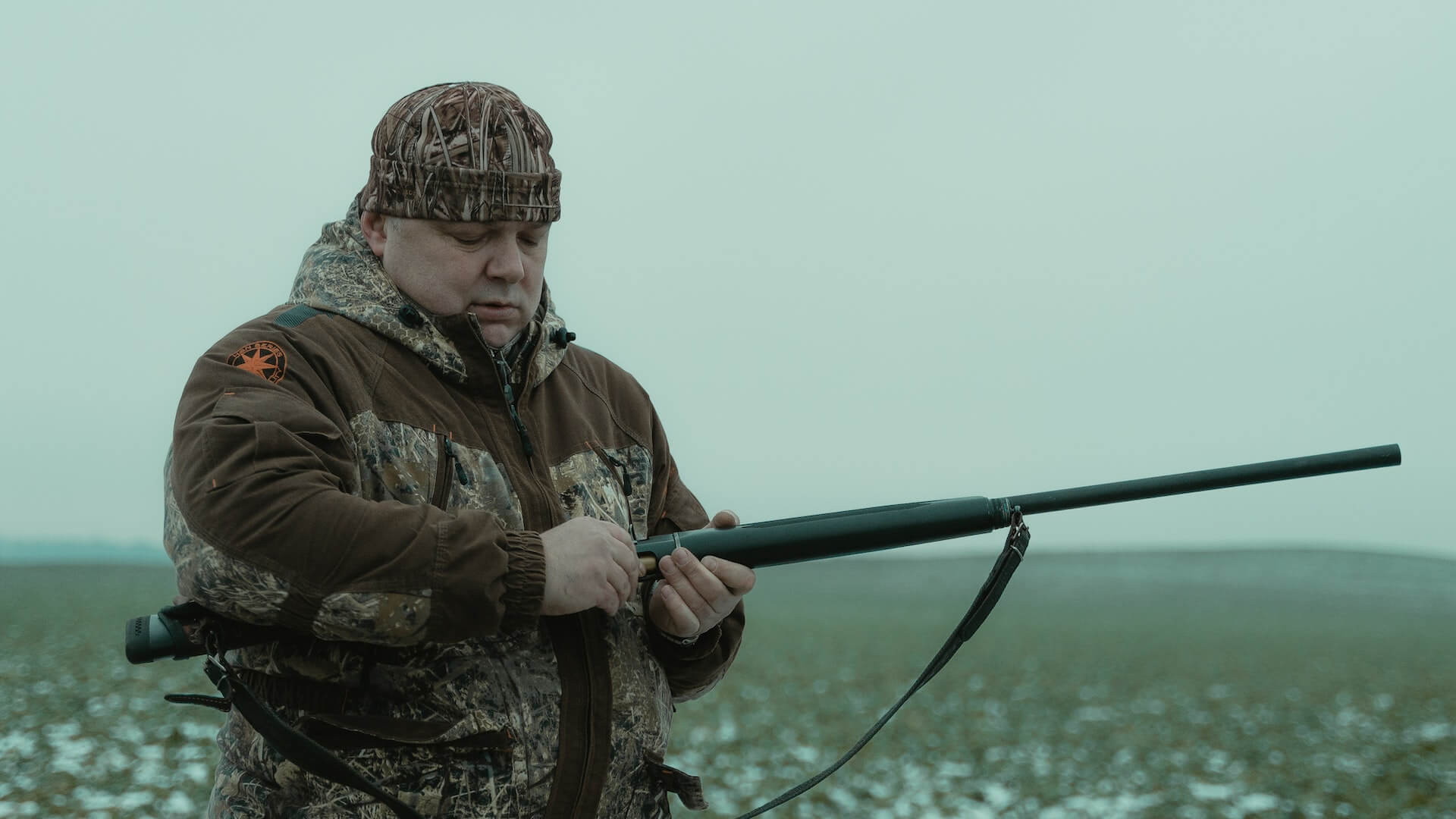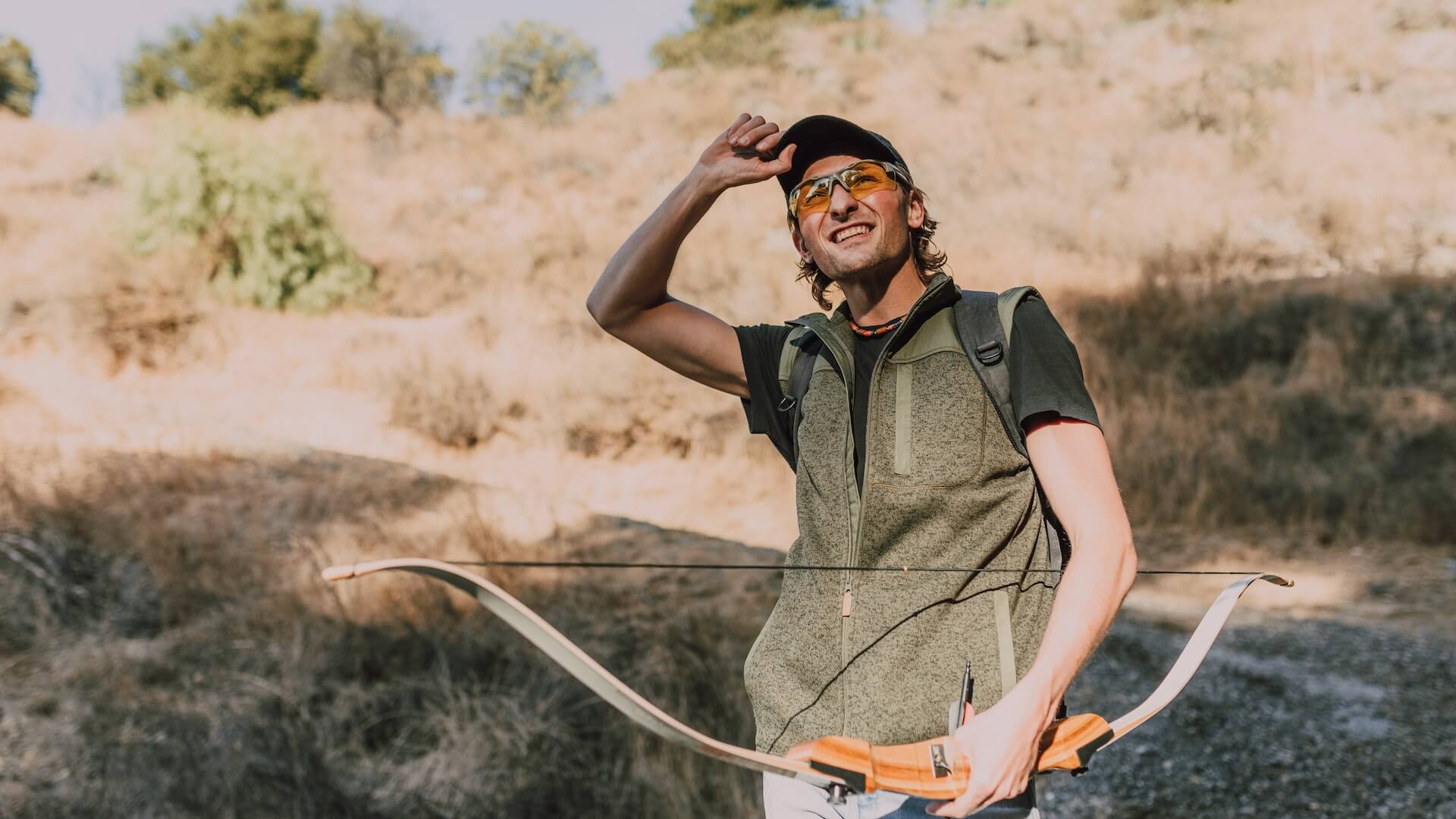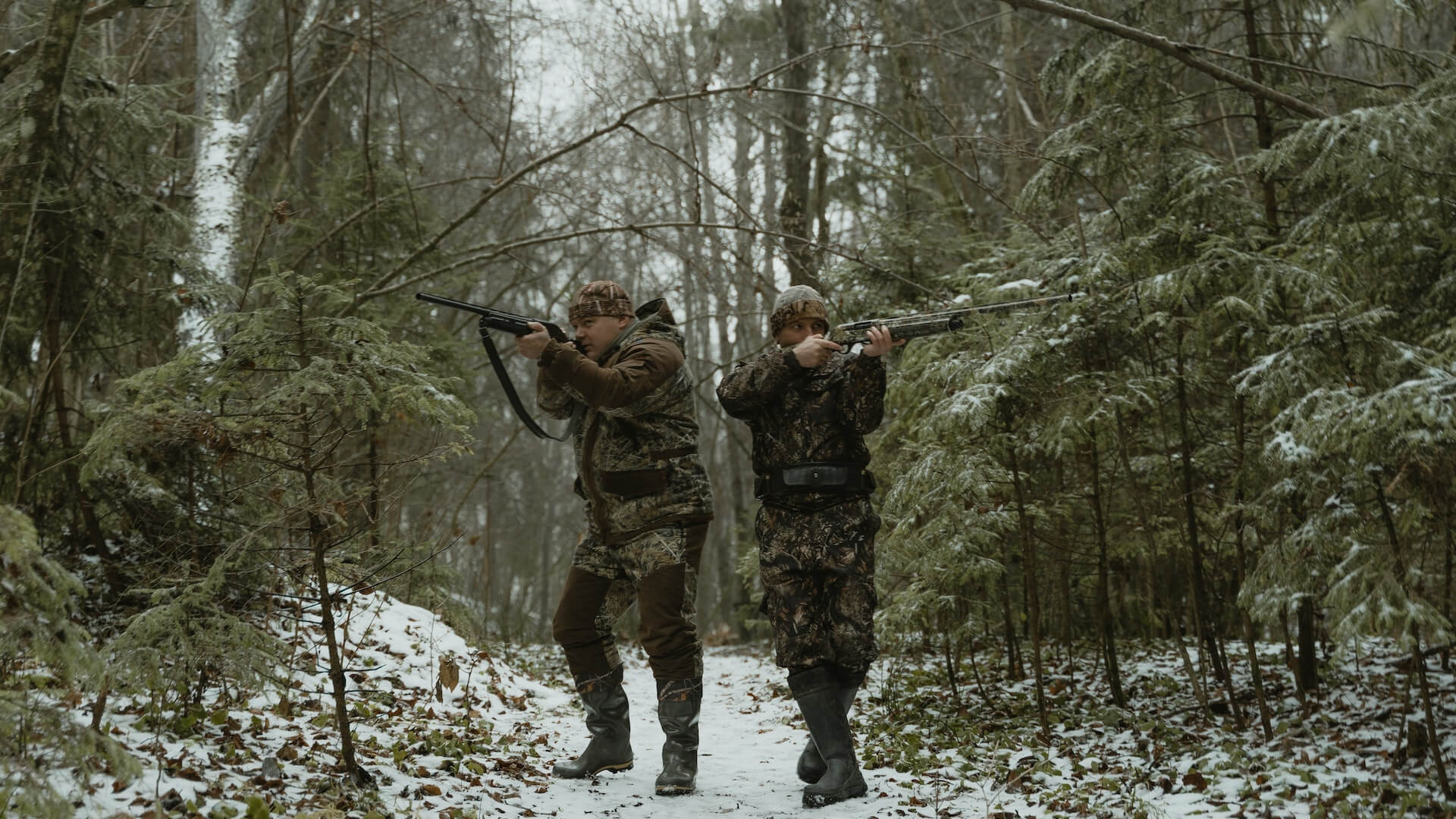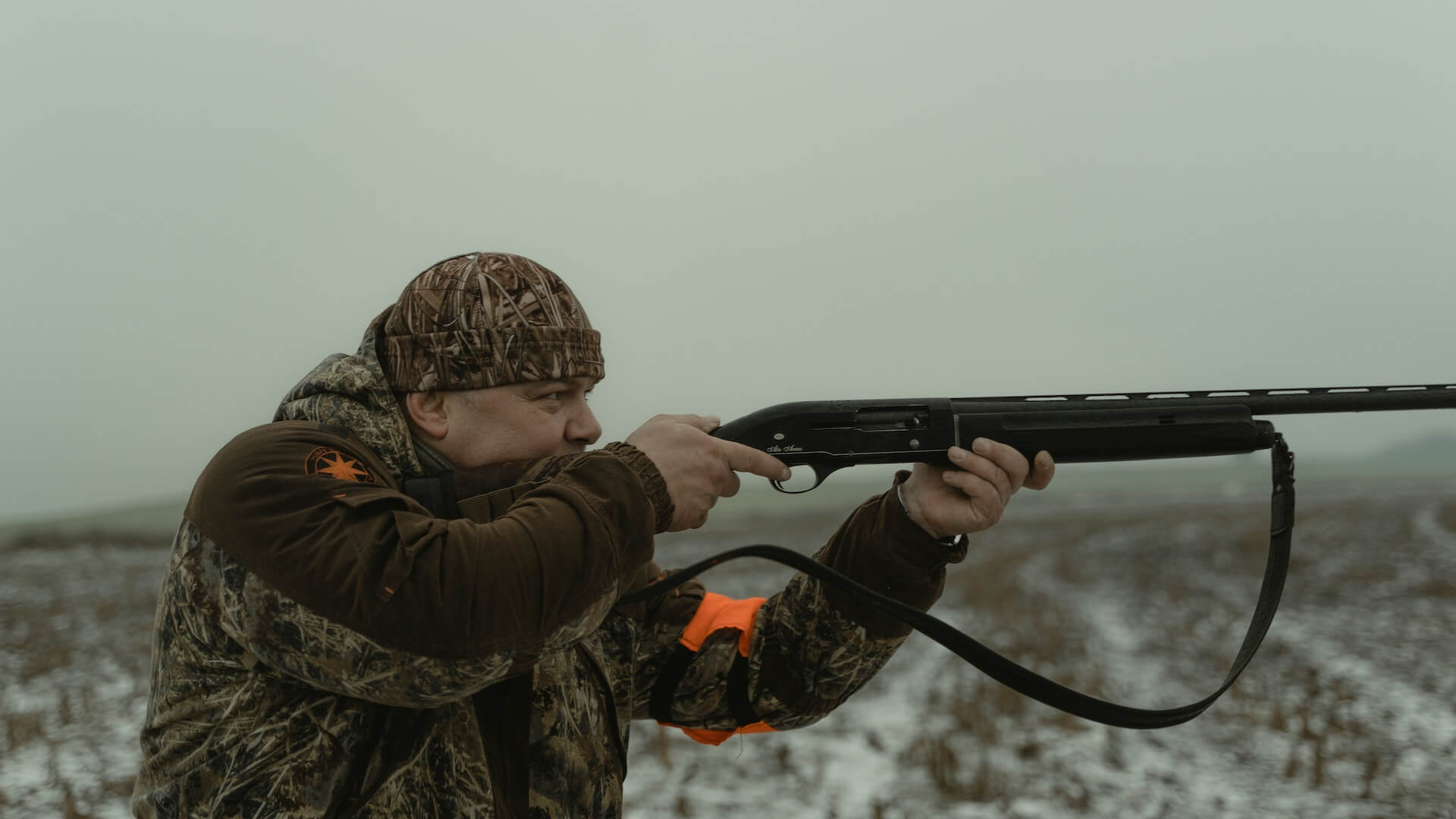Hunting is more than just a hobby or a sport. It’s a way of life for many people, and it requires a unique set of skills and knowledge to be successful. Whether you’re a seasoned hunter or just starting out, there is always something new to learn to improve your hunting skills. From choosing the right equipment and scouting out the perfect location to understanding animal behavior and safety tips, this guide will provide you with everything you need to know to become a master hunter. With these essential tips and tricks, you’ll be able to track and capture your prey with confidence and skill, making your hunting trips more successful and rewarding than ever before. So, let’s dive in and master the art of hunting together!
Understanding the mindset of a successful hunter
To truly master the art of hunting, it is crucial to understand the mindset of a successful hunter. Hunting is not only about physical skills and techniques, but also about mental preparation and focus.

First and foremost, a successful hunter possesses a deep appreciation and respect for nature and wildlife. They understand the delicate balance of ecosystems and the role they play as stewards of the land. This mindset drives them to hunt responsibly, following all regulations and ethical guidelines to ensure the sustainability of wildlife populations.
Furthermore, a successful hunter knows the importance of patience and perseverance. Hunting requires hours, if not days, of waiting and observing. It is about blending into the surroundings, becoming one with nature. This mindset allows the hunter to remain calm and focused, even in the face of adversity or challenging conditions.
Successful hunters also possess a keen sense of observation and understanding of animal behavior. They study their prey, learning their habits, movements, and preferred habitats. This knowledge allows them to anticipate the animal’s actions, increasing their chances of a successful hunt.
In addition, a successful hunter embraces the concept of continuous learning. They are always eager to expand their knowledge and skills, whether it be through reading books, attending seminars, or seeking advice from more experienced hunters. This mindset of constant improvement ensures that they stay up-to-date with the latest hunting techniques and strategies.
Lastly, a successful hunter understands the importance of gratitude and humility. They appreciate the opportunity to connect with nature, to challenge themselves, and to provide for their families. This mindset keeps them grounded and respectful, regardless of their level of expertise or the size of their trophy.
Essential hunting gear and equipment
As you venture into the wilderness, being properly equipped will not only enhance your chances of success but also ensure your safety and comfort throughout the hunting expedition.
First and foremost, a reliable hunting rifle is a must-have. Whether you prefer a bolt-action rifle, a semi-automatic, or a muzzleloader, selecting a firearm that suits your hunting style and the game you intend to pursue is crucial. Additionally, make sure to invest in high-quality ammunition and practice your shooting skills regularly to improve accuracy and precision.
Apart from the firearm, a sturdy and comfortable hunting backpack is essential for carrying all your gear and supplies. Look for a backpack that offers ample storage space, multiple compartments for organization, and adjustable straps for a customized fit. This will allow you to carry essentials such as water, snacks, extra clothing layers, hunting calls, binoculars, and a field dressing kit.
Speaking of binoculars, having a good pair is indispensable for scouting game from a distance. Opt for binoculars with a high magnification power and a wide field of view to spot animals and assess their behavior without alerting them to your presence. This will significantly increase your chances of a successful hunt.
Other gear and equipment that should be included in your hunting arsenal are camouflage clothing to blend in with your surroundings, sturdy and comfortable hunting boots for traversing various terrains, a reliable hunting knife for field dressing and processing game, scent control products to minimize your odor and avoid detection, and a reliable GPS device or a compass to navigate unfamiliar territories.
Choosing the right hunting location
The location you choose can greatly impact your chances of finding game and having a fruitful hunt. There are several factors to consider when selecting a hunting location.

Firstly, research the area thoroughly. Look for areas that are known for having an abundance of game and a healthy population. Consider the type of game you are targeting and find out if the area is known to have a high concentration of that particular species. This information can often be found through local hunting clubs, wildlife management agencies, or online resources.
Secondly, consider the terrain and habitat of the area. Different game species prefer different types of habitats, so it’s important to choose a location that matches the natural environment of your target game. For instance, if you’re hunting deer, look for areas with dense forests and ample food sources. If you’re hunting waterfowl, search for wetlands or marshy areas near bodies of water.
Additionally, accessibility is a crucial factor to consider. Choose a location that is easily accessible, both in terms of transportation and navigating the terrain. Ensure that you have the necessary permits and permissions to hunt in the area, and familiarize yourself with any regulations or restrictions that may be in place.
Lastly, consider the hunting pressure in the area. If a location is heavily hunted, it may affect the behavior and availability of game. Look for areas that are less crowded and have lower hunting pressure to increase your chances of success.
Learning about your target species
Before embarking on a hunting expedition, it is crucial to invest time and effort in learning about your target species. Understanding the habits, behaviors, and natural habitats of the animal you are pursuing will greatly enhance your chances of success in the field.
Researching your target species can be done through various means. Start by studying field guides, wildlife documentaries, and online resources dedicated to hunting and wildlife. These sources will provide valuable insights into the preferred habitats, feeding patterns, and mating rituals of your desired game.
Consider joining local hunting clubs or organizations that focus on conservation and education. These groups often offer workshops and seminars conducted by seasoned hunters and wildlife experts. Attending these events will not only provide you with a wealth of knowledge but will also connect you with like-minded individuals who can share their experiences and tips.
Another effective way to learn about your target species is through firsthand observation. Spend time in the outdoors, observing the animal in its natural habitat. This can be done through hiking, birdwatching, or even setting up trail cameras in areas known to be frequented by your desired game. By studying their movements and behavior, you can gain valuable insights that will inform your hunting strategies.
Additionally, consider seeking guidance from experienced hunters who have successfully pursued the same species. Their expertise and advice can prove invaluable in honing your skills and understanding the intricacies of hunting your target species.
Developing essential hunting skills and techniques
Whether you are a beginner or have some experience, there are always ways to improve and refine your hunting abilities.

One of the most fundamental skills to develop is patience. Hunting requires waiting for the right moment, observing your surroundings, and understanding the behavior of your target. Patience allows you to remain calm and focused, increasing your chances of a successful hunt.
Another essential skill is marksmanship. Being able to accurately and effectively shoot your weapon is vital for ethical hunting. Practice regularly at shooting ranges or in controlled environments to improve your accuracy and precision. This includes mastering various shooting positions, understanding the trajectory of your ammunition, and learning how to compensate for factors such as wind and distance.
Tracking and scouting are also essential skills for a successful hunt. Learning to read signs, tracks, and other clues left by animals can lead you to their whereabouts. Take the time to study animal behavior, learn about their habitats, and understand their feeding and mating patterns. This knowledge will help you strategize and position yourself for a higher chance of encountering your target.
Additionally, it is important to develop stealth and concealment techniques. Animals have keen senses and can easily detect human presence. Learning to move quietly, blend into your surroundings, and utilize camouflage can greatly increase your chances of getting closer to your prey undetected.
Lastly, knowledge of hunting regulations and ethics is crucial. Understanding and abiding by local laws and regulations ensures both the sustainability of wildlife populations and your own safety. Always prioritize ethical practices, such as taking clean shots and respecting the animals you hunt.
The importance of patience and persistence
Patience is a virtue that every hunter must possess. It is the ability to remain calm and composed even in the face of uncertainty. Hunting requires waiting and observing, sometimes for hours on end, for the perfect opportunity to strike. It may mean sitting silently in a tree stand or hiding in a blind, waiting for the right moment to take aim. Patience allows you to stay focused and attentive, increasing your chances of making a successful shot.
Persistence is equally crucial in the world of hunting. It is the determination to keep going, even when faced with obstacles or setbacks. Hunting can be challenging and unpredictable, with days of unsuccessful hunts. However, a persistent hunter does not give up easily. They continue to scout, track, and adapt their strategies until they achieve their desired outcome. Persistence is what sets apart successful hunters from those who give up too soon.
Both patience and persistence go hand in hand. Patience allows you to wait for the right opportunity, while persistence ensures that you keep striving towards your goal. Together, they form a powerful combination that can lead to a higher success rate in hunting.
Moreover, these qualities not only contribute to hunting success but also cultivate a deeper appreciation for nature and the wildlife around us. They teach us to be mindful, observant, and respectful of the natural world. Hunting becomes more than just a pursuit; it becomes a journey of self-discovery and connection to the outdoors.
So, the next time you head out into the wilderness, remember the importance of patience and persistence. Embrace the waiting game, stay focused, and keep pushing forward. With these qualities by your side, you will increase your chances of mastering the art of hunting and experiencing the thrill of a successful hunt.
Strategies for tracking and stalking your prey
Here are some essential strategies to help you become more effective in tracking and stalking your prey.
First and foremost, it’s important to study your prey’s habits and patterns. Research their feeding and resting areas, as well as their preferred routes and territories. By understanding their routines, you can anticipate their movements and position yourself in strategic locations.
One effective strategy is to look for signs of recent activity. This can include fresh tracks, droppings, or disturbed vegetation. Take your time to analyze the signs and determine the direction your prey is heading. This will give you valuable insights into their current location and help you plan your approach.
To avoid alerting your prey, it’s essential to move silently and slowly. Take small, deliberate steps, placing your feet carefully to avoid unnecessary noise. Use the surrounding vegetation as cover, keeping yourself concealed and blending into the environment. This will make it more difficult for your prey to detect your presence.
Using binoculars or a spotting scope can greatly enhance your tracking abilities. These tools allow you to observe your prey from a distance, without disturbing them. Look for any movement or unusual behavior that might indicate their presence. This information will guide your stalking strategy and increase your chances of a successful hunt.
Another effective technique is to use the wind to your advantage. Animals have a keen sense of smell, and any foreign scent can alert them to danger. Position yourself downwind from your prey, so that your scent is carried away from them. This will minimize the risk of detection and increase your chances of getting closer.
Lastly, practice patience and persistence. Tracking and stalking can be a time-consuming process, requiring hours or even days of observation and waiting. Stay focused and committed to your goal, adapting your strategies as needed. Remember, hunting is a test of skill and perseverance, and success often comes to those who are willing to put in the effort.
Practicing ethical hunting practices
As hunters, it is our responsibility to ensure that our actions align with a code of ethics that prioritize the well-being of the animals we pursue and the habitats they inhabit.

One of the most fundamental aspects of ethical hunting is understanding and obeying all hunting laws and regulations. These laws are in place to protect wildlife populations and maintain a balanced ecosystem. It is essential to be familiar with the specific rules and restrictions of the area you are hunting in, including bag limits, hunting seasons, and any special restrictions or permits required.
Beyond legal requirements, ethical hunters strive to minimize their impact on the environment. This can be achieved by practicing Leave No Trace principles, which emphasize leaving the natural surroundings as undisturbed as possible. This includes properly disposing of waste, avoiding damage to vegetation, and respecting the rights of landowners.
Additionally, ethical hunters prioritize humane and clean kills. Taking the time to develop marksmanship skills and using appropriate equipment, such as high-quality firearms or archery gear, can greatly contribute to this goal. It is important to aim for quick and efficient kills to minimize suffering and ensure a respectful harvest.
Respecting the animal and utilizing all parts of the animal is another aspect of ethical hunting. Wasting any part of the animal goes against the principles of conservation and respect. Proper field dressing, handling, and processing of game meat are essential to ensuring that the animal is utilized to its fullest extent.
Lastly, ethical hunters also recognize the importance of responsible behavior and respectful interactions with other hunters, non-hunters, and the wider community. This includes maintaining a positive public image, being mindful of noise pollution, and adhering to ethical hunting practices even when not directly observed.
Tips for hunting in different seasons and weather conditions
When it comes to hunting, adapting to different seasons and weather conditions is crucial for success. Each season presents its own unique challenges and opportunities, and being prepared will greatly enhance your hunting experience.
During the spring and summer, when the weather is warm and vegetation is abundant, it’s important to focus on scouting and locating potential hunting spots. Look for signs of game activity such as tracks, droppings, and feeding areas. Pay attention to the patterns of the animals you are targeting, as they may change their behavior to adapt to the changing environment.
In the fall, as temperatures begin to drop and leaves change color, hunting becomes more exciting. This is the time for you to take advantage of the mating season and the animals’ increased activity levels. Use calls and scents to attract your target species and be prepared to cover more ground as animals become more elusive.
Winter hunting requires additional precautions due to the cold temperatures and potential for harsh weather conditions. Dress in layers to stay warm and protect yourself from frostbite. Use camouflage to blend in with the snowy surroundings and take advantage of the increased visibility. Additionally, consider using bait or food sources to attract animals that are searching for nourishment during the winter months.
Rainy and windy weather can present challenges during any season. Animals may seek shelter, making them harder to spot. In these conditions, patience and persistence are key. Look for areas of cover where animals may take refuge and take advantage of the reduced noise caused by rainfall or wind to move stealthily.
Staying safe in the wilderness while hunting
When venturing into the wilderness for a hunting expedition, safety should always be your top priority. The rugged and unpredictable nature of the great outdoors requires careful planning and preparation to ensure a safe and successful hunting experience.
First and foremost, it is crucial to familiarize yourself with the hunting area and its potential hazards. Research the terrain, weather conditions, and any potential wildlife encounters that may pose a threat. Knowledge is power when it comes to staying safe in the wilderness.
Before setting out, ensure that you have the appropriate gear and equipment. This includes essentials such as a first aid kit, map and compass or GPS, extra clothing layers, ample food and water supplies, and a reliable means of communication such as a two-way radio or satellite phone.
Furthermore, always let someone know about your hunting plans. Inform a trusted friend or family member of your intended location, expected return time, and any specific details about your hunting itinerary. This way, in case of an emergency, help can be alerted promptly.
While in the wilderness, it is essential to practice proper firearm safety. Treat every firearm as if it is loaded and never point it in an unsafe direction. Keep your finger off the trigger until you are ready to shoot and be aware of your surroundings at all times.
In addition, it is crucial to be mindful of your physical limitations and pace yourself accordingly. Hunting in challenging terrain can be physically demanding, and pushing yourself beyond your capabilities can lead to accidents or injuries. Take regular breaks, stay hydrated, and listen to your body.
Lastly, respect the wildlife and adhere to all hunting regulations and ethical guidelines. Responsible hunting involves not only ensuring your own safety but also the conservation and preservation of the natural environment and its inhabitants.
Conclusion
Hunting is a skill that requires patience, knowledge, and practice, but with these essential tips, you’ll be well on your way to becoming a successful hunter. Remember to always prioritize safety, respect for nature, and adherence to local hunting regulations. Whether you’re a novice or an experienced hunter, we hope these insights have provided valuable information to enhance your hunting experience. Now go out there and embrace the thrill of the hunt!



